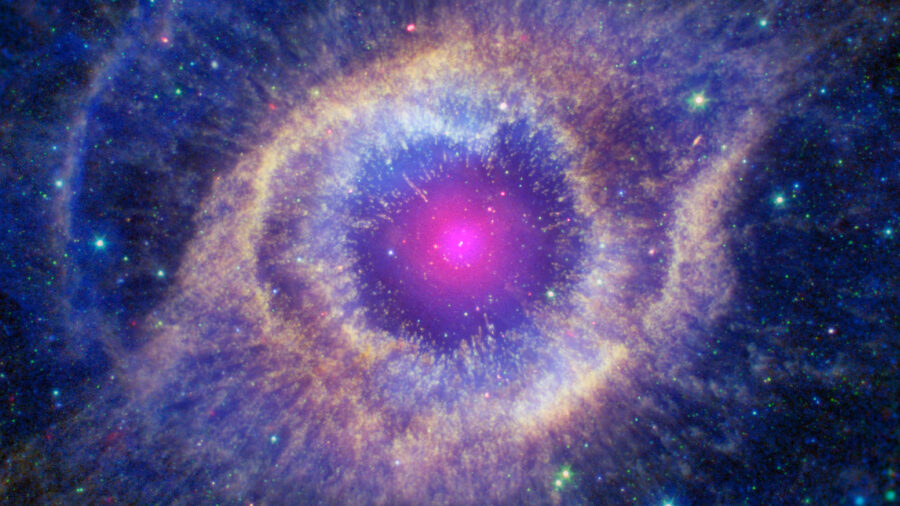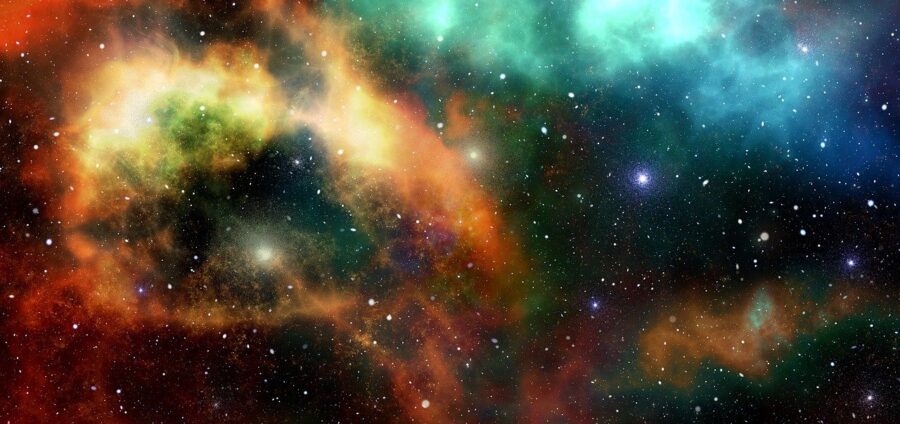Scientists Think Our Universe Was Created In A Laboratory
Scientists are positing that our universe wasn't created by the Big Bang, but rather by another civilization in an advanced laboratory
This article is more than 2 years old

Trying to explain the creation of the universe can be tough sledding. Some folks think it started with a bang, a moment in time that sparked just enough movement to get the whole ball rolling. Others take a different, though really not all that dissimilar approach, using religion and a higher being like a God that snap his/her/its fingers, and voila, a universe was here. Obviously, there are problems with both, and there are other theories out there that have some holes poking through them. Well, according to a recent paper, there is another hypothesis floating out there about our current lot in space and time. It’s that our universe was actually created in a laboratory of a far superior and advanced race.
Posting an opinion piece in Scientific American, the former chair of Harvard University’s (ever heard of it?) astronomy department and chairman of the Board on Physics and Astronomy of the National Academies (among many other positions) Avi Loeb took a different path to explaining our universe and its creation. Loeb posits that before the Big Bang, the time unknown was actually when an advanced technological civilization was creating baby universes, as he calls them. This was through the use of quantum tunneling which is, in layman’s terms, the ability to make atoms appear across different barriers that would seem impossible to penetrate. This phenomenon would allow another civilization to create a universe where there wasn’t one before.
What’s interesting about Loeb’s theory is that it actually solves a couple of different problems with both the scientific and religious explanations about the beginning of a universe. Both struggle to explain what happened before with the scientists working to understand where gravity and quantum mechanics came from. The religious one is less problematic because it relies on believing in a higher power but obviously struggles with the same scientific foundations about the “before”.

In trying to picture where humans exist on the hierarchy of species or civilizations that would be able to create this kind of scientific phenomenon, rest assured we have a long way to climb. Loeb calls us “Class C” citizens in the universal structure because we rely on our Sun to provide everything we need for large-scale survival. He even says we are trending towards Class D because we are actually killing the place where we currently live. The next step up is Class B, a group that doesn’t need the star power at all, but has developed power and energy sources sufficient to replicate what civilization needs for survival. Class A is the group that hypothetically created our own universe in a lab, that one that would have figured out quantum tunneling and put it to use popping out baby universes.
It’s worth noting the laboratory creation of our universe is different than the simulation theory of universal existence. In that one, we simply live in a digital construct created by a program far beyond our understanding. Think The Matrix, but hopefully less nasty. In this one, we are simply living in a programmed reality meant to replicate the “real”. Does it matter for our day-to-day lives? Probably not, but they are interesting to dissect in their own ways.
What to do with this information about seeing our universe as nothing more than a lab creation? Well not much for our current situation. Again, we are way behind some others who might be out there with technology far beyond our own. But Loeb says we should be on the lookout for these technologically advanced Classes because understanding their existence might help us come to understand our own.












